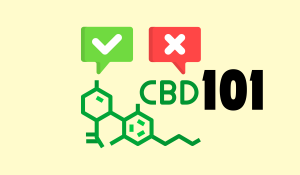When it comes to understanding the differences between CBD oil and hemp oil, the landscape can be quite confusing. Both products are derived from industrial hemp, yet they serve different purposes and contain different compounds. Let’s clarify the distinctions between CBD oil vs. hemp oil and address common misconceptions.
CBD oil is extracted from the flowers, leaves, and stalks of the hemp plant. It contains high levels of cannabidiol (CBD), a non-psychoactive compound known for its potential therapeutic benefits, such as reducing seizures in dogs, relieving pain, and easing anxiety.
Hemp oil, also referred to as hempseed oil, is derived from the seeds of the hemp plant. Unlike CBD oil, hemp oil contains minimal to no CBD. Instead, it’s rich in nutrients like omega-3 and omega-6 fatty acids, making it an excellent addition to skincare products and dietary supplements.
While both oils come from the same plant, they are far from being the same product:

Hemp oil is celebrated for its numerous health benefits, especially for skin health. It contains anti-aging properties, moderates oil production, moisturizes, soothes inflammation, and treats dermatitis. These benefits are largely attributed to its high levels of omega-6 and omega-3 fatty acids, as well as linoleic and oleic acids, which the body cannot produce naturally.

Although rare, hemp oil can cause mild irritation when applied topically. When consumed orally, it might cause digestive issues, often due to the oil carrier rather than the hemp oil itself. Additionally, individuals on blood thinners should exercise caution, as hemp oil can inhibit platelet production, leading to potential interactions with their medication.

CBD oil is renowned for its potential health benefits, which include

While CBD oil is generally well-tolerated, some individuals may experience side effects, including:
There is a lot of confusion in the marketplace regarding CBD oil and hemp oil. Marketers often blur the lines between these products, using terms like “cannabis oil” and highlighting cannabis leaves on packaging to suggest CBD content when there is none. It’s essential to read labels carefully and understand the differences to make informed choices.

Therapeutic Uses of CBD Managing Chronic Pain with CBD Struggling with chronic pain? CBD might help. Studies suggest it can reduce inflammation and alleviate discomfort,...
Read More
What Is CBD? CBD is one of over 100 natural compounds called cannabinoids found in the Cannabis sativa plant. Unlike THC (tetrahydrocannabinol), the well-known psychoactive...
Read More
What Causes Hip Pain? There are a variety of conditions that can result in hip pain: • Hip injuries, such as...
Read More
What Causes Hashimoto’s Disease? There isn’t a clear cause behind why this disease affects 5% of the U.S. population. Many researchers believe it’s the result...
Read More